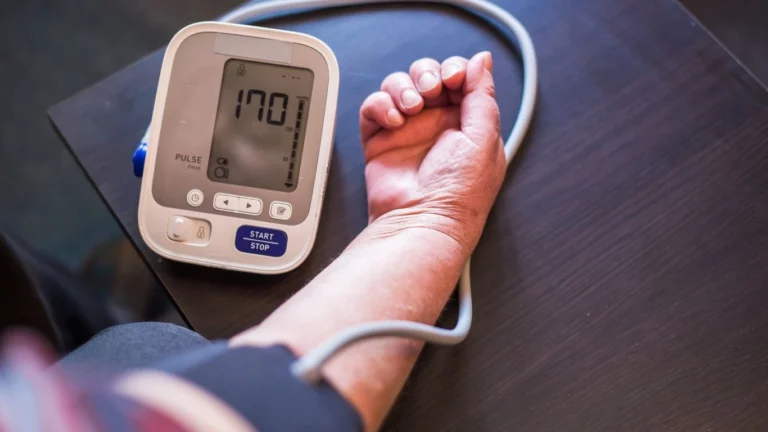Surprising Link: Can Asthma Cause Sleep Talking and Restless Nights?
If you’ve ever been woken up by your partner muttering in their sleep—or you’ve caught yourself sleep talking and wondered what’s going on—you’re not alone. One question I get surprisingly often from patients is, “Can asthma cause sleep talking?” It’s a fascinating connection and not something many folks think about. As a pulmonary nurse practitioner, I’ve spent years helping people manage asthma and sleep issues, and I’ve come across some curious overlaps. Let’s dig into this together in a real-talk, no-white-coat kind of way.
Understanding Asthma and Its Nighttime Personality

So first things first—what exactly happens to asthma at night? We call it “nocturnal asthma,” and it’s something I see all the time in my clinic. The airways get extra twitchy during sleep (yeah, like a moody teenager), which can lead to symptoms like:
- Wheezing
- Coughing
- Shortness of breath
- Tight chest
All this can disrupt your sleep, big time. And here’s the kicker—when your sleep quality drops, your brain doesn’t cycle through sleep stages like it should. That can lead to weird things like talking in your sleep. You may not even know you’re doing it unless someone tells you (or your pet gives you side-eye in the morning).
So… Can Asthma Cause Sleep Talking?

Yes, indirectly—asthma can lead to sleep talking, but not because of the asthma itself. It’s the way asthma messes with your sleep that triggers it. Think of it like this: when your airways are inflamed and you’re tossing and turning, your sleep architecture gets all scrambled. That disruption is what can make you talk in your sleep, especially if you’re stuck in lighter stages of sleep like NREM1 or NREM2.
From my own experience working night shifts in respiratory units, I can’t count how many times a patient on oxygen would start mumbling during shallow sleep—sometimes full sentences, sometimes just garbled words. At first, I thought they were awake! Turns out, it was sleep talking triggered by poor-quality rest caused by breathing difficulties. That light bulb moment made me start connecting the dots with asthma sufferers too.
What Sleep Talking Might Tell You About Your Asthma
If you (or someone you love) starts blurting things out in the middle of the night and they have asthma, it might be your body’s way of waving a red flag. Your lungs might be working overtime, even if you’re not fully waking up. That’s a sign you should check in with your asthma management routine:
- Are you using your controller inhaler consistently?
- Do you notice symptoms getting worse at night?
- Is your bedroom free from dust, pet dander, and other triggers?
Sometimes people get so used to minor breathing discomfort, they don’t realize it’s affecting their sleep. And let me tell you—asthma doesn’t have to be dramatic to be disruptive.
Why Nighttime Asthma Is a Bigger Deal Than You Think

Now let’s talk about something that doesn’t get enough airtime—your body’s natural rhythms. Cortisol levels drop at night, and that anti-inflammatory magic weakens. Meanwhile, histamines (those fun little allergy triggers) spike. All of this makes the airways more reactive, especially if you have underlying conditions like allergies or acid reflux. It’s basically a perfect storm for nocturnal asthma flares.
When your lungs are irritated at night, you may not always wake up completely. But your brain knows something’s off. It might jolt you into light sleep over and over, and that constant interruption messes with REM sleep. And when REM gets shortchanged, that’s prime time for sleep talking to sneak in.
I’ve had patients come in more worried about the weird stuff they were saying at night than their actual asthma. One guy joked that he was planning an imaginary vacation in his sleep. But after digging deeper, we realized his late-night coughing fits were keeping him in shallow sleep, and that was the root cause of the mumbling monologues.
What Else Links Asthma and Sleep Talking?

So we’ve already talked about how asthma can stir up your sleep and lead to late-night chatter. But let’s get into some lesser-known factors that create a domino effect between your lungs and your dreams. One big one? Oxygen levels.
When asthma flares up, especially at night, it can drop your oxygen saturation subtly—not enough to set off alarms, but just enough to mess with your brain while you sleep. Your brain likes steady oxygen. Dip too low, and it gets confused. You might twitch, talk, or even act out dreams. I’ve had more than one patient tell me they “dreamt they were arguing with someone,” only for their partner to say they were actually sleep talking—loudly!
This is especially common in folks who already struggle with anxiety or are on the sensitive side of the nervous system spectrum (I say that with love—we’re all wired differently!). Asthma-induced oxygen dips can make the brain more reactive, more emotional, and yep—more likely to spill words while you snooze.
How Anxiety and Stress Add Fuel to the Fire
Here’s where it gets real. Mental health plays a huge role in both asthma and sleep talking. In my own practice, I’ve noticed that patients with poorly controlled anxiety tend to have more nighttime asthma symptoms, even when their lungs look okay on spirometry. That stress tightens the chest and messes with your breathing rhythm. Add in some shallow, restless sleep, and boom—sleep talking becomes a frequent flier.
And let’s not forget, asthma itself is a stressful condition. It’s unpredictable. It wakes you up gasping at 3 a.m. It makes you second-guess exercise and social plans. That constant worry can sneak into your subconscious and bubble up in your sleep—sometimes in the form of talking, sometimes in wild dreams, and sometimes just general restlessness.
Tracking Sleep Talking in Asthma Patients

If you’re curious whether your asthma is causing sleep disturbances or sleep talking, there are a few things I usually recommend:
- Use a sleep tracking app or smartwatch. These gadgets can’t diagnose, but they can highlight patterns. Look for frequent awakenings or excessive light sleep.
- Keep a sleep journal. I know, old-school, but still super helpful. Note what time you went to bed, how many times you woke up, and if you had any asthma symptoms or dreams.
- Ask your partner or roommate. Trust me, they’ll be happy to give you a report if you’re talking in your sleep. Bonus: it’ll help you laugh about it, which reduces stress, too.
One of my patients, a woman in her late 30s, came in after her partner recorded her talking about “a cat stealing her inhaler.” Funny, yes—but it turned out she was waking up multiple times a night due to undiagnosed nighttime asthma symptoms. Once we adjusted her medication and added an air purifier, both the wheezing and the sleep talking eased up.
Tips for Managing Nighttime Asthma (and Maybe the Sleep Talking Too)

Managing asthma more effectively at night can go a long way toward improving your overall sleep quality—and maybe dialing down the chatty dreams. Here are a few practical, real-world tips I often share:
- Take your controller inhaler as prescribed—not just when you feel bad. Consistency is key, especially in the evening.
- Elevate your head slightly when sleeping. Gravity can help keep your airways clearer and reduce post-nasal drip, which can trigger coughing fits.
- Use a HEPA air purifier in your bedroom. Even if you’re not super allergic, this helps minimize tiny irritants that can sneak in and cause flare-ups.
- Avoid heavy meals, alcohol, and caffeine late in the day. These can all affect both asthma and sleep cycles, sometimes triggering reflux that irritates the lungs overnight.
I also recommend winding down your night with a calming routine—nothing fancy. A warm shower, a little journaling, maybe some box breathing (inhale for 4, hold for 4, exhale for 4, hold for 4). It signals your nervous system to chill out and lets your lungs relax too. That peaceful state reduces the chance of disrupted sleep cycles… and the chance you’ll start narrating your dreams like a sleep-deprived podcaster.
Bottom line? Asthma might not be directly making you talk in your sleep, but it’s definitely pulling some strings behind the curtain. When you get your nighttime asthma under control, you’re more likely to sleep deeply—and silently.
When to Talk to Your Doctor About Sleep Talking and Asthma

Alright, so at this point you might be wondering, “Okay, Bianca, but when is it serious enough to bring up with my provider?” First off—always trust your gut. If something feels off, even if it seems minor like sleep talking, it’s worth a conversation. I’ve seen countless patients brush it off, only to realize later that it was a sign their asthma control wasn’t where it needed to be.
Here are some signs it’s time to check in with your healthcare provider:
- You’re waking up multiple times a week from coughing, wheezing, or shortness of breath
- Your partner tells you you’re talking in your sleep regularly—especially if it’s new or getting worse
- You feel tired all day, despite spending 7-8 hours in bed
- Your rescue inhaler use has crept up, especially at night
In clinic, I usually review symptom patterns, peak flow readings (if you’re using a meter), and ask about environmental triggers. Sometimes, we’ll tweak medications—maybe adjust the dose, add a nighttime dose, or even evaluate for coexisting issues like GERD or sleep apnea. These can make asthma and sleep problems way more complicated.
Could It Be Something Else? When Sleep Talking Isn’t Just About Asthma
Here’s the thing—as much as I see asthma tied into sleep talking, it’s not the only cause. That’s why a full sleep health review is so important. Other possibilities might include:
- REM sleep behavior disorder – where people act out dreams (often more physical than talking, but still relevant).
- Night terrors – usually more common in kids, but they can sneak into adulthood.
- Stress-related sleep disturbances – especially after trauma or major life changes.
Sometimes we even refer folks to a sleep specialist if things aren’t adding up. And hey, there’s no shame in that—I’ve referred nurse friends who thought they were just “bad sleepers,” only to discover they had undiagnosed mild sleep apnea or underlying anxiety.
Making Your Sleep Environment Asthma-Friendly

Let’s talk real-world changes for a sec. Medication is huge, yes—but the environment you sleep in can either help or sabotage you. I always tell my patients: your bedroom should feel like a spa for your lungs. Here are some of my favorite practical tips:
- Wash bedding in hot water weekly to kill dust mites
- Use allergy-proof covers on pillows and mattresses
- Keep pets out of the bedroom—yes, even the sweet ones!
- Run a HEPA filter or air purifier, especially if you live in a city or near wildfires
- Skip candles or scented plugins, which can trigger sensitive lungs
I once had a patient whose nighttime asthma symptoms vanished when she stopped using a lavender diffuser. She was so bummed—until we found a hypoallergenic alternative that didn’t bother her airways. Small changes like these can have big impacts.
Final Thoughts: Can Asthma Cause Sleep Talking?
Let’s wrap it up with a big “yes—but indirectly.” Asthma can cause sleep talking by disrupting your sleep quality, especially if symptoms are active at night. The resulting sleep fragmentation messes with your sleep cycles, particularly REM, which can lead to talking, twitching, or even dreaming out loud.
As a pulmonary NP, I always remind people—asthma isn’t just a daytime problem. How you sleep tells you a lot about how well-controlled your asthma really is. And if your sleep starts getting weird, whether that’s talking, waking up coughing, or just feeling tired all the time, it might be time to look closer.
Better asthma control = better sleep = less nighttime chatter. It’s all connected, and thankfully, manageable with the right care and awareness.
References
- Centers for Disease Control and Prevention
- Asthma and Allergy Foundation of America
- Sleep Foundation
- American Thoracic Society
Disclaimer
This article is intended for informational purposes only and is not a substitute for professional medical advice, diagnosis, or treatment. Always talk to your healthcare provider if you have any concerns about your asthma, sleep health, or unusual symptoms like sleep talking. I’m sharing insights based on my clinical experience as a pulmonary nurse practitioner, but every person is different—so make sure your care is personalized.

Bianca Nala is a compassionate Nurse Practitioner with a strong background in primary and respiratory care. As a health writer for Healthusias.com, she combines her clinical expertise with a talent for clear, relatable storytelling to help readers better understand their health. Bianca focuses on topics like asthma, COPD, chronic cough, and overall lung health, aiming to simplify complex medical topics without losing accuracy. Whether she’s treating patients or writing articles, Bianca is driven by a single goal: making quality healthcare knowledge accessible to everyone.







